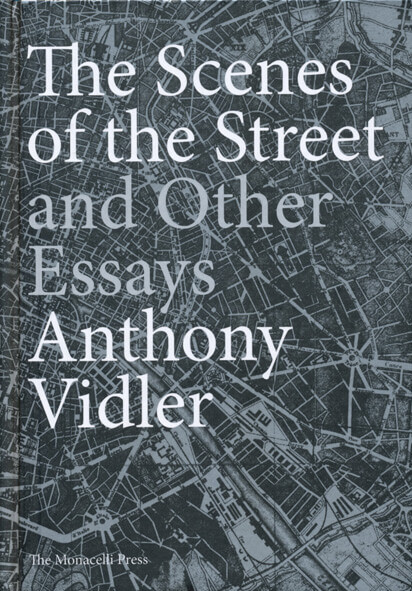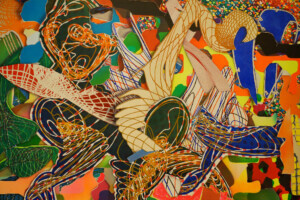Anthony Vidler—the Essex, England–born architect, historian, and professor renowned for his erudition and passion for teaching—died on October 20 at the age of 82. News of his passing was confirmed by Princeton University School of Architecture (SoA) where he was a faculty member between 1965 and 1993.
“Tony transformed the discipline of architecture during his time at Princeton,” said Mónica Ponce de León, dean of the Princeton School of Architecture. “He was an integral figure in the history of the school. His legacy is present today and will continue for decades to come. We were fortunate that he had returned to teaching at Princeton and that new generations of SoA graduates and undergraduates students got to know him. This is a huge loss to the field of architecture, the world of ideas, and for our school.”
Vidler was born in 1941 in Essex, just northeast of London. His experiences as a youth in post-war England, visiting London with his family, and a stint in Venice, Italy during his teenage years brought him to architecture school. He went on to receive a Bachelor of Arts and Diploma in architecture from Cambridge University; and a PhD in architectural history and theory from the Delft Institute of Technology.
In 1965 at the age of 24, Vidler joined the faculty at Princeton, where luminaries such as Kenneth Frampton and Alan Colquhoun shortly followed. At Princeton, Vidler revolutionized architectural history, theory, and criticism; publishing canonical works such as The Writing of the Walls: Architectural Theory in the Late Enlightenment (1987); Claude-Nicolas Ledoux: Architecture and Social Reform at the End of the Ancient Regime (1990), a book which received the Henry-Russell Hitchcock Award from the Society of Architectural Historians; and The Architectural Uncanny: Essays in the Modern Unhomely (1992).
“Tony Vidler is in the DNA of Princeton,” Beatriz Colomina, a professor at Princeton SoA said. “He arrived to teach in the school of architecture in 1965 at the age of 24, soon followed by Kenneth Frampton and Alan Colquhoun. Like the British invasion in pop music, it was a revolution. Architectural history became cool and Princeton the place to be. Tony was always a remarkable colleague and mentor. After 30 years he moved to other schools but in a deeper sense he never left.”
Between 1992 and 1993, Vidler was a Getty Scholar at the Getty Center for the History of Art and the Humanities. In 1993, Vidler was appointed as Chair of the Department of Art History at UCLA where he stayed until 2002. Between 1997 and 1998, he was dean of the College of Art, Architecture and Planning at Cornell University. In 2000, he published Warped Space: Architecture and Anxiety in Modern Culture.
In 2002, Vidler left UCLA to become dean and professor of architecture at The Cooper Union Irwin S. Chanin School of Architecture. He succeeded John Hejduk as that program’s second dean in its history since it became independent from the School of Arts in 1975. Vidler was Dean of The Irwin S. Chanin School of Architecture until 2013 where he taught courses about Walter Benjamin. A philosopher, Vidler’s seminars often centered and critiqued Foucault, Deleuze, Derrida, and Barthes.
The Canadian Centre of Architecture in Montreal named Vidler a Senior Mellon Fellow in 2005. Between 2002 and 2013, he continued publishing important works of scholarship. Histories of the Immediate Present: The Invention of Architectural Modernism (2008), James Frazer Stirling: Notes from the Archive (2010), and The Scenes of the Street and other Essays (2011) all debuted during this tenure.

While teaching, Vidler received a number of accolades. He was a fellow at the Institute of Architecture and Urban Studies, the New York Institute for the Humanities, and the American Academy of Arts and Sciences. In 2011 he was the recipient of the architecture award from the American Academy of Arts and Letters. He also received awards from the Guggenheim Foundation, and the National Endowment for the Humanities.
After 2013, he continued teaching at The Cooper Union and Princeton. In the months leading up to his death, Vidler had been in hospice care. During that time, he continued teaching and serving on juries at architecture schools. In spring 2023 at The Cooper Union, he confided in students how it was growing up in post-war England, and seeing London in rubbles, that inspired him to practice and write about architecture; a memory this writer will remember dearly.











